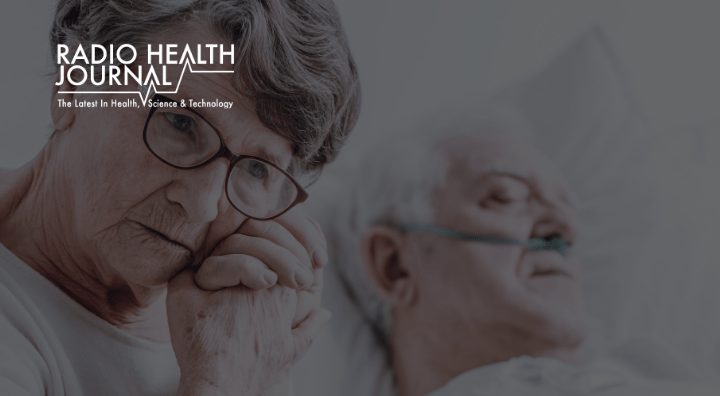Millions of Americans believe they are allergic to penicillin. However, most of them are wrong. Experts discuss how these misdiagnoses happen and what results when so many of us avoid the most effective, yet cheapest antibiotic.
Guest Information:
- Dr. David Khan, Professor of Medicine, University of Texas Southwestern Medical Center
- Dr. Alan Frient and Dr. Jodi Zuckerman, otolaryngologists, North Shore Ear, Nose and Throat Associates, Highland Park, IL
19-17 Penicillin Allergy
Reed Pence: Penicillin is the safest, most effective antibiotic available worldwide, according to experts. And the cheapest. However, nearly 10 percent of the world’s population – millions upon millions of people – say they’re allergic to penicillin, so they don’t take this often life-saving drug. Yet experts say most of those claims are false. If they’d ever take a test, the results would show very few of them are actually allergic to penicillin. And that’s putting them, and us, at risk.
Dr. David Khan: Penicillin allergy is the most frequent drug allergy listed by patients, really worldwide and certainly in the U.S. and it’s estimated about 10 percent of people carry a label of penicillin allergy.
Pence: That’s Dr. David Khan, professor of medicine at the University of Texas Southwestern Medical Center in Dallas.
Khan: The other fact that most people are not aware of is that penicillin allergy label does not equate with having a true penicillin allergy. So it turns out that only less than two percent of people who think they are allergic to penicillin are actually allergic. So the majority of these people walk around thinking they are allergic to penicillin but aren’t and are treated differently and that leads to more problems for them and perhaps even the population at whole because it leads to more drug resistance, etcetera.
Dr. Alan Freint: Most people were told by their parents when they were young that they had an allergic reaction to penicillin when if fact studies and tests have shown that upwards of 90 percent really never did have an allergy; it was just an associated rash or other reaction that occurred coincident with the infection.
Pence: That’s Dr. Alan Freint (frent), an otolaryngologist with North Shore Ear, Nose and Throat Associates in suburban Chicago.
Freint: A person who believes they are allergic to penicillin is restricted from having all medications in the exact penicillin family, which includes amoxicillin and another drug called amox clav. Similar medicine in the penicillin family and a relative in a group called the cephalosporins, which are partuially related to the penicillin groups. So that takes two of the major groups of antibiotics off the table when we are treating infections.
Pence: Which Khan says leaves patients with alternative antibiotics that just aren’t as effective as those in the penicillin family, especially for treating ear, nose and throat infections.
Khan: Some of these medications are more likely to cause antibiotic-associated infections. One of these things is a bacteria that you can get called c-difficile. This can cause severe diarrhea. And you know you think just diarrhea how bad can that be? It turns out this can actually lead to death and this is one of these unintentional consequences of some of these broader spectrum antibiotic usages.
Pence: Khan says another problem with broad-spectrum non-penicillin alternatives is that they are not as effective treating resistant organisms.
Khan: I think most people are aware of bacteria called staph. And there are different types of staph and staph bacteria some that are only able to be treated with a very specific antibiotics. And the use of these more broad spectrum non-penicillin antibiotics can lead to increased resistance then increased development to get these more resistant staph bacteria or other bacteria. And when you get these then it certainly leads to, you end up in the hospital longer and get treated for other things, so these are some of the more problematic things associated with some of these what we call broad spectrum antibiotics as opposed to more narrow targeted antibiotics like penicillin.
Pence: Khan says a penicillin allergy label can be particularly problematic for people undergoing orthopedic surgery.
Khan: Many surgeries the antibiotic is actually given before the surgery. A common example of this are people who are getting knee or hip surgeries, they are frequently given a dose of antibiotics ahead of time. This is anther example where the common antibiotic that’s used for patients to prevent infections related to these kind of orthopedic procedures is somewhat of a cousin of penicillin and because of this many surgeons or the anesthesiologist are fearful of using this type of antibiotic and we use these other broad spectrum antibiotic. So making sure that we identify that they are really not allergic to penicillin can avoid these problems as well.
Pence: But why is it that so many people wrongly believe they’re allergic to the penicillin family? The problem has developed innocently enough. If a child developed a rash during a regimen of penicillin, often the parent would assume it was an allergy to the drug. That label would go into the child’s medical record unquestioned and untested… following them for life. However, because the label has become so prevalent in recent years, Khan has created a test for his hospital patients to verify a penicillin allergy.
Khan: We developed a program to screen patients for their penicillin allergy while they were actually in the hospital. They could be admitted for a variety of different reasons. We developed a partnership with our pharmacy department and trained one of the pharmacists to take a careful drug allergy history as well as in the technique of doing penicillin allergy testing. So everyday we would utilize the electronic medical record and screen for patients who had a penicillin allergy label and then identify those that we thought would be most likely to benefit that they were currently on antibiotics or had other diseases that would make them more predisposed to having antibiotics, and then we’d identify these patients in the hospital and see who we could do testing on.
Pence: Over the last year and a half, Khan has tested more than 300 hospital patients. Ninety-eight percent of them tested negative for penicillin allergy. He’s also found that getting rid of that penicillin allergy label turns out to be beneficial for both these patients’ health and their pocketbooks.
Khan: We also looked at their antibiotic use before and afterwards and found out that they were using more penicillin as you might imagine, which is more restricted and less of these more dangerous type antibiotics and for some patients this turned out to be cost effective as well because some of the other medications are very expensive. We recently completed a study just t targeting a group of patients who were treated with a fairly expensive intravenous antibiotic just because off their penicillin allergy and it ended up being about 90 percent cost savings for the antibiotic alone. So several studies have shown savings of thousands of dollars sometimes per hospital visit and if you multiply that by 10 percent of the population we’re talking about a lot of money.
Pence: But even if a child has tested positive for penicillin allergy in the past, that doesn’t necessarily mean that patient is still allergic as an adult.
Dr. Jodi Zuckerman: Patients can outgrow the allergy. So if it happened when you were six and now you are I your 40s there’s a potential that you may have had some reactivity to penicillin and your immune system’s changed.
Pence: that’s Dr. Jodi Zuckerman, Frient’s partner at North Shore Ear, Nose and Throat. She believes that all adult patients with a penicillin allergy label in their medical records should be tested. All it takes is a two-hour office visit.
Zuckerman: The first portion they’re going to have what’s called prick testing where the penicillin antigen is going to be introduced to the skin. So if someone is truly allergic we do it in three stages. So in the first stage where the antigen was applied to the skin – and we call it a prick, it’s just a little sharp mechanism that introduces the antigen right under the skin – we’ll start to see redness itching in a wheel form. And they have to hake a wheel that’s three millimeters bigger than our negative control. So sometimes it’s hard to tell. We may repeat that process, but if the have a wheel that swells up that kind of looks like how the positive control histamine looks, at that point the test is stopped for that patient.
Pence: But if nothing remarkable happens at this first stage, then they continue onto the second stage of the test-- really just a repeat of the first stage.
Zuckerman: If they pass that portion of the test then we can go on to what we call our oral challenge. In the oral challenge they are given a pill – we give them 250 milligrams of amoxicillin. You want to start with a low dose the first time you’re having them take it and adjust it. And if there’s no reaction in an hour we can say that this is a negative test.
Pence: In other words, you are not allergic to penicillin.
Zuckerman: The way I approach my patients is always conservative to aggressive, and when you’re trying to be as conservative as possible you want to give them as many options as possible. So to have this one class that’s so available and covered and usually effective for what we treat is a really nice additive for a patient who’s been told for years that they can’t take penicillin.
Pence: Zuckerman says the test is usually covered by insurance and that many practices around the country now offer it in conjunction with a regular allergy test.
Khan: I think this is somewhat of a sea change if you will, in terms of identifying these patients ahead of time before they actually really need it. In the past as allergists many times if someone was allergic to penicillin we wouldn’t do anything about because you say well, there are other alternatives and really only if you need penicillin for some very specific indication we would then do the retesting. But now with more and more information coming out that the dangers of having this label of penicillin allergy attached has consequences, we’re trying to identify these patients beforehand so that we can electively remove that label and they can be treated appropriately.
Pence: If you’ve carried the penicillin allergy label in your medical records since childhood, now may be the time to be tested. It could save you a lot of money, improve your health, and maybe even save your life. You can learn more about penicillin allergy and all of our guests by visiting our web site at radiohealthjournal.net. Our writer/producer this week is Polly Hansen. I’m Reed Pence.
Sign up to receive email updates
Enter your name and email address below and I'll send you periodic updates about the podcast.











Leave a Reply